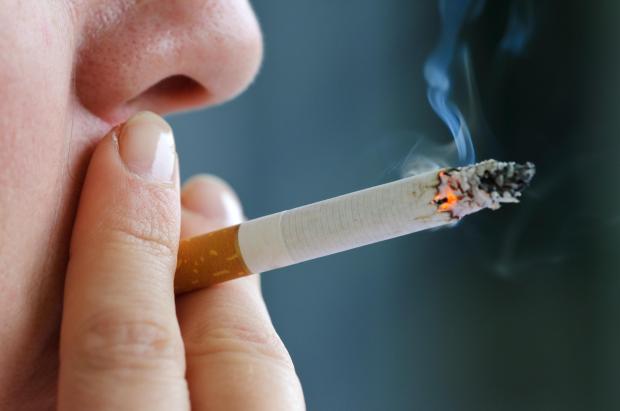Smoking will kill EIGHT MILLION people a year by 2030, experts warn

THE number of deaths caused by smoking is set to rise by a third over the next decade, experts have warned.
Tobacco use is currently responsible for about six million deaths per year but the World Health Organisation (WHO) expects the death toll to rise to eight million by 2030.
Health experts say tobacco use is the single biggest preventable cause of death globally.
And low to middle income earning countries will be hit harder by the rise in fatalities.
The joint report between the WHO and U.S. National Cancer Institute said around 80 per cent of smokers live in such countries, and although smoking prevalence was falling among the global population, the total number of smokers worldwide is rising.
There are more than 4,000 chemicals in tobacco smoke, of which at least 250 are known to be harmful and more than 50 are known to cause cancer.
Smoking is one of the biggest causes of death and illness in the UK with around 100,000 people dying each year, according to the NHS.
It is linked to a range of diseases including heart disease, heart attack, stroke, bronchitis and emphysema, pneumonia and cancers in the mouth, lips, throat, larynx, oesophagus, bladder, kidney, liver, stomach and pancreas.
It causes about 90 per cent of lung cancers and also prolongs the symptoms of asthma and respiratory tract infections.
On top of the devastating death toll, the habit is proving a costly one worldwide.
The study suggests that the global economy is losing about £820 billion a year because of the impact smoking has on productivity levels and health services.
The WHO claims governments are failing to use effective tools to reduce the number of deaths from tobacco use, despite them being readily available, reported Reuters.
RELATED STORIES
The report, which has been peer-reviewed by more than 70 scientific experts, said: "It is responsible for... likely over $1 trillion in health care costs and lost productivity each year.
"Government fears that tobacco control will have an adverse economic impact are not justified by the evidence. The science is clear; the time for action is now."
Governments spent less than $1 billion (about £820 million) on tobacco control in 2013-2014, according to a WHO estimate.
The organisation recommends using tobacco taxes to fund more expensive interventions such as anti-tobacco mass media campaigns and support for quitting services and treatments.
Australia's stringent 'plain packaging' laws, which enforce standardised designs on tobacco products and ban distinctive logos and colourful branding, have faced challenges globally.
A trade dispute was brought forward by Cuba, Indonesia, Honduras and Dominican Republic against the laws.
The World Trade Organization is expected to rule on the complaint this year.
Meanwhile, Australia's policy is being closely watched by other countries that are considering similar policies, including Norway, Slovenia, Canada, Singapore, Belgium and South Africa.
Only one in three countries, representing a third of the world's population, monitors tobacco use by repeating nationally representative youth and adult surveys at least once every five years, according to the WHO.
But for now there is no magic cure if you want to quit smoking.
Robert West, Professor of Health Psychology at University College London told The Sun: "Nicotine replacement therapies, including gums, can help — more than 100 studies say so. But they are no magic cure.
"Studies show smokers have a better chance of quitting using a nicotine patch combined with one of the others, such as gum or lozenges.
"And it’s vital to accept a lot of willpower is needed. All nicotine replacements do is reduce the cravings and mood swings a bit."
If you want to quit, try the NHS Smoking Helpline – in England 0800 434 6677, Wales 0800 085 2219, Scotland 0800 84 84 84, Northern Ireland 0808 812 8008.








